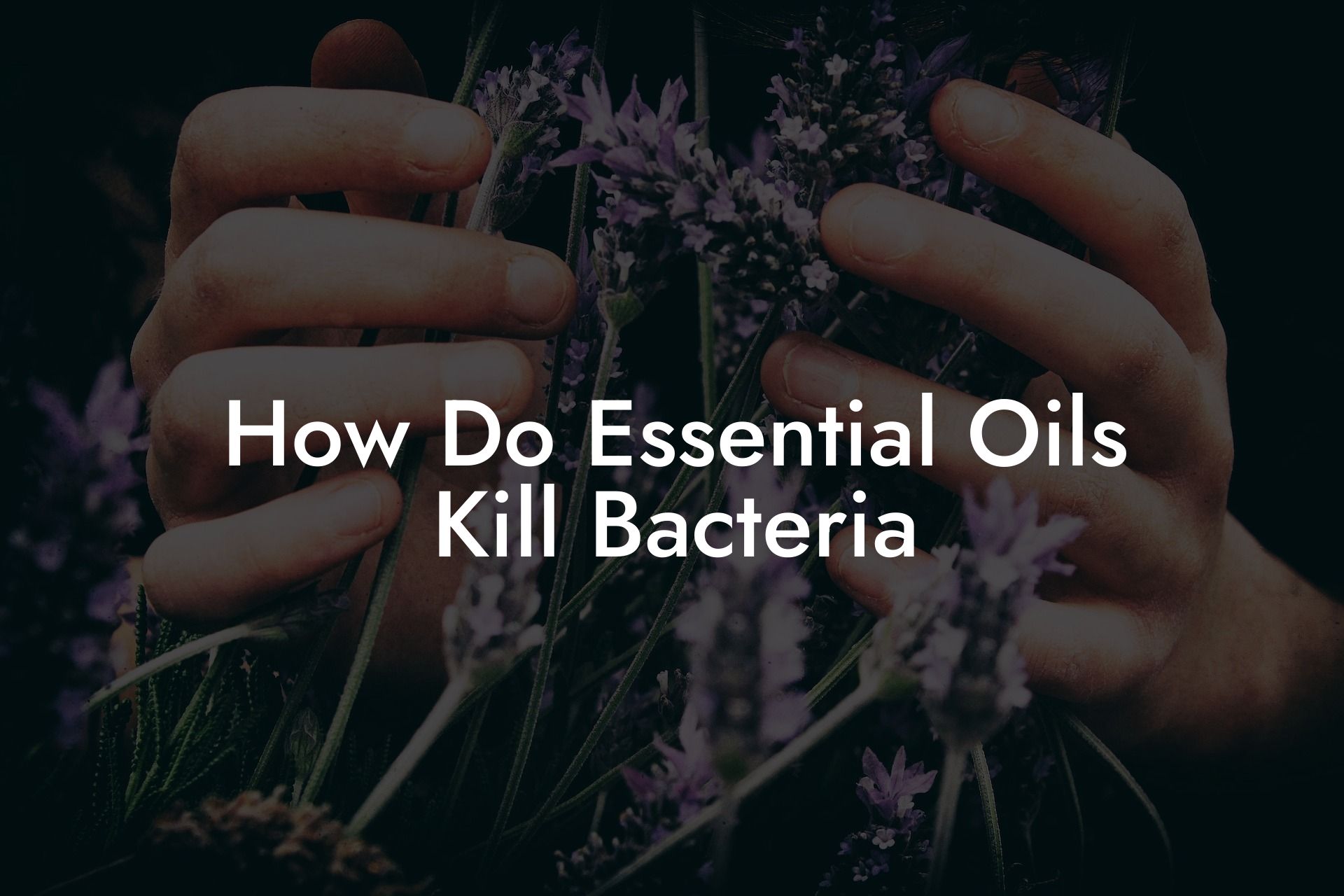Essential oils have been used for centuries for their therapeutic properties and natural remedies. One of the many health benefits attributed to essential oils is their ability to kill harmful bacteria. In this article, we will dive into the world of essential oils and explore the science behind their antibacterial properties. We’ll also share some real-world examples of how these powerful oils can be incorporated into your daily routines to keep you and your family healthy.
Table of Contents
Understanding Essential Oils and their Antibacterial Properties
What Are Essential Oils?
Essential oils are concentrated extracts from plants, obtained through processes such as steam distillation or cold pressing. They contain the plant’s natural essence and can provide physical and emotional benefits when used properly.
How do Essential Oils Kill Bacteria?
Essential oils contain a multitude of bioactive compounds that can exhibit antibacterial properties. These compounds work by disrupting the bacteria’s cellular structures, interfering with their ability to thrive and reproduce. Some of the primary ways essential oils can combat bacteria include:
- Disrupting bacterial membranes: Many essential oils have lipophilic properties, which means they can dissolve in fats, oils, and lipids. This ability helps them penetrate and disrupt the outer membrane of bacterial cells, damaging their structure and integrity, eventually killing the harmful bacteria.
- Inhibiting bacterial enzymes: Certain essential oil compounds work by blocking the activity of essential enzymes required for bacterial growth and reproduction, thus stopping their spread.
- Interrupting bacterial communication: Some essential oils can inhibit the communication between bacterial cells – a process known as “quorum sensing” – which prevents the bacteria from coordinating their activities and reproducing.
Effective Essential Oils for Killing Bacteria
While many essential oils possess antibacterial properties, some are specifically known for their ability to combat bacterial growth. Some of the most powerful antibacterial essential oils include:
- Tea Tree Oil: This oil is known for its potent antimicrobial properties, making it a favorite for treating various bacterial infections, such as acne and athlete’s foot.
- Eucalyptus Oil: Apart from its ability to cherish the respiratory system, eucalyptus oil is also effective against antibiotic-resistant bacteria like MRSA (Methicillin-resistant Staphylococcus aureus).
- Lavender Oil: Lavender’s gentle yet powerful antibacterial properties make it a popular choice for soothing minor skin wounds and treating bacterial skin infections.
- Peppermint Oil: Peppermint oil is not only antibacterial but also antiviral, making it a great addition to your natural cleaning routine.
- Oregano Oil: This powerful oil exhibits strong antibacterial properties and is known to effectively target harmful bacteria like E. coli and Salmonella.
How Do Essential Oils Kill Bacteria Example:
Using essential oils as natural cleaning agents can help reduce exposure to toxic chemicals found in many conventional products. Here’s a simple recipe to create an antibacterial cleaning spray for your home using essential oils:
Ingredients:
- 1 cup distilled water
- 1/4 cup white vinegar
- 10 drops of eucalyptus oil
- 10 drops of tea tree oil
- 5 drops of lemon oil (optional, for a fresh scent)
Instructions:
- Mix all the ingredients in a spray bottle.
- Shake well before each use to ensure oils are evenly distributed.
- Spritz onto surfaces and wipe clean with a cloth or paper towel.
Now that you understand the science behind essential oils and their antibacterial potential, you can harness their power to protect yourself and your loved ones from harmful bacteria. Don’t forget to share this valuable information with friends and family to help them also benefit from these potent natural remedies. Be sure to explore other informative guides on Oshu Oils and browse our extensive range of essential oils to find the perfect blends to support your wellbeing.





















